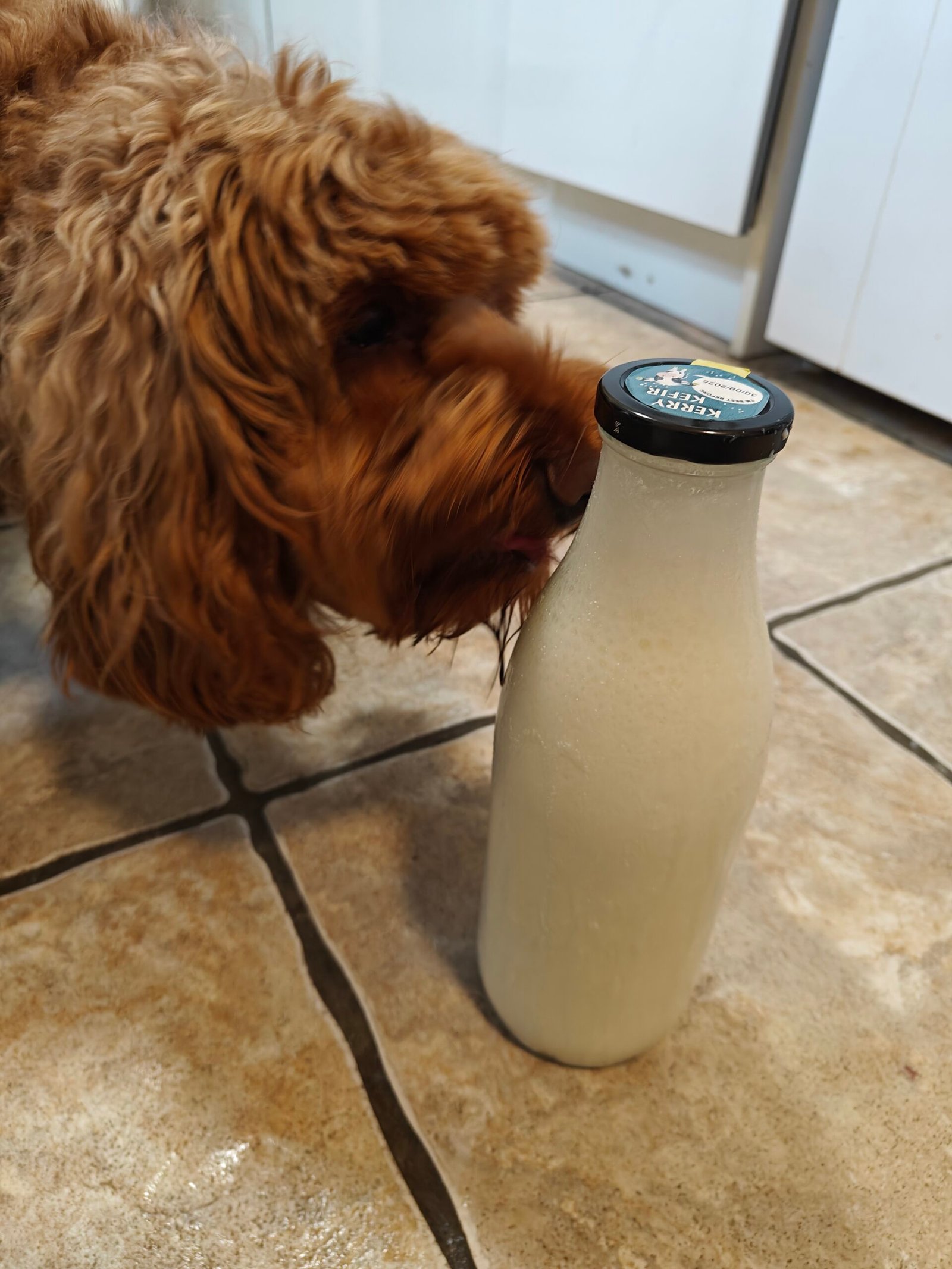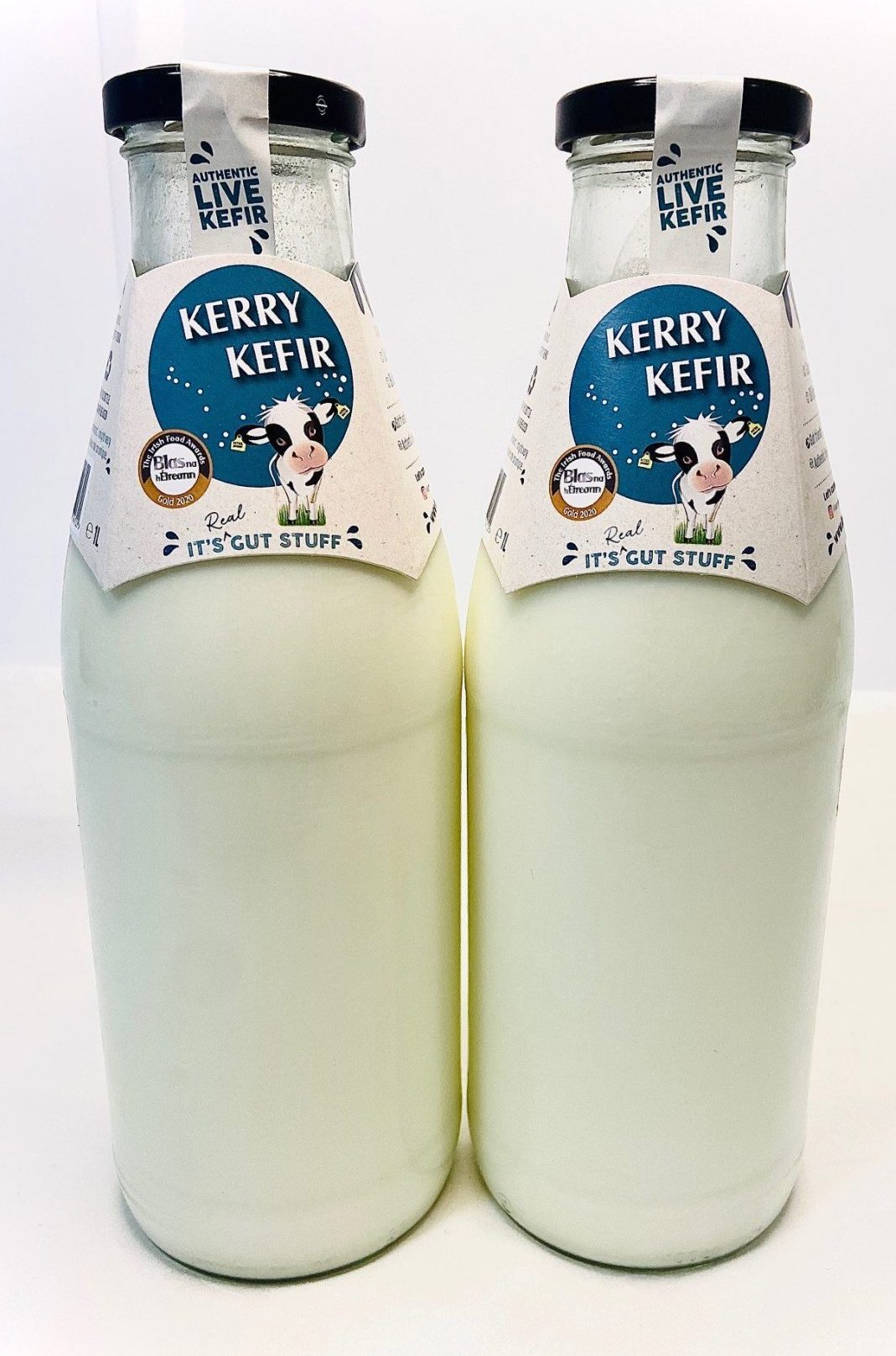If you’re already enjoying Kerry Kefir as part of your daily routine, you know how powerful it can be for gut health. But here’s some good news, your four-legged friend might benefit too!
Kefir is a naturally fermented drink made from live kefir grains, a unique combination of bacteria and yeasts that work together to create a gut-friendly beverage. While it’s best known for supporting human digestion and immunity, new research suggests that kefir may offer similar benefits to our furry companions.
A Healthier Gut for Happier Pets
Just like humans, your dog has trillions of microbes living in their gut, collectively known as the microbiome. A healthy balance helps with digestion, mood, and immunity.
A 2023 study published in the Journal of Animal Science found that dogs who consumed kefir for two weeks experienced an increase in beneficial lactic acid bacteria and a reduction in potentially harmful microbes (Rosa et al., 2023).
Another paper showed kefir can boost short-chain fatty acid production, compounds that keep the digestive tract strong and healthy.
In simple terms, kefir may help keep things running smoothly inside your dog’s tummy.

Gentle on Sensitive Stomachs
If your dog’s stomach is sensitive or they’ve recently been on antibiotics, kefir may help restore balance. Because most of the lactose is broken down during fermentation, kefir is much easier to digest than milk.
In trials, dogs given kefir maintained normal digestion and nutrient absorption, with no signs of stomach upset or diarrhoea.
Immune Support (From the Inside Out)
A healthy gut supports a strong immune system. While more research is needed, kefir has shown anti-inflammatory and immune-modulating effects in both animal and cell studies. One review highlights kefir’s ability to reduce pro-inflammatory cytokines and enhance the body’s natural defences (Silva et al., 2018, MDPI Veterinary Sciences). That means your dog may be better equipped to fight off everyday bugs or digestive upsets.
Safe, Natural and Irish-Made
Studies show kefir is safe for healthy dogs and cats when given in moderation. However, not all kefir is created equal. Similar to our recent blog on kefir available on the Irish market, a 2020 analysis of six commercial pet kefir products found inaccurate labels and mismatched microbial species (Ouwehand et al., 2020, Frontiers in Microbiology).
At Kerry Kefir, we craft kefir the traditional way, small-batch fermented in glass using live kefir grains and fresh milk from Kerry farms. It’s the same naturally active kefir trusted for thousands of years

How to Introduce Kefir to Your Dog
Start small: 1 teaspoon for small dogs or 1–2 tablespoons for medium/large dogs, added to food or served plain.
Watch and adjust: Increase slowly as tolerated.
Use plain kefir: No flavourings, no sugar.
Check with your vet: Especially for pets with allergies, pancreatitis or chronic gut issues.
What About Cats?
Cats can also enjoy kefir in small amounts. Start with 1 teaspoon and increase slowly if tolerated. The same gut-friendly microbes may help support their digestion and immunity too.
Note: Kefir is a functional food, not a cure. Pets with chronic GI disease, pancreatitis, or immunosuppression should not rely solely on kefir; veterinarian diagnostics and treatments remain essential.
